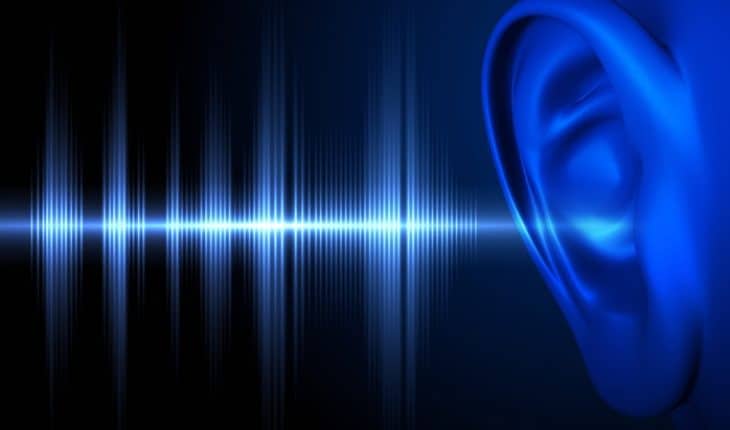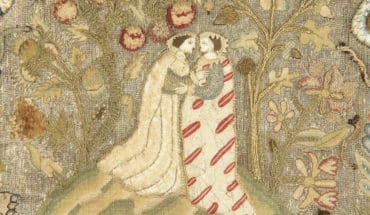The largest cause of hearing loss is age-related damage to the inner ear. The second biggest cause of hearing loss however is exposure to loud noise. Loud noises can come from a wide range of sources – unwanted and wanted – but both can jeopardise your hearing if it is at hazardous levels.
Unwanted noise includes machinery at work, power tools at home, noise from transport such as the London Underground and airplane take off. Desired noise includes listening to loud music such either via head phones or at live concerts, motorbike racing such as Formula 1, or shooting for sport.
In general, a noise could be loud enough to damage your hearing if it entailos you raising your voice in order to talk to other people or you can’t hear what people are saying even when they are close by. Or if it hurts your ears or you experience ringing in your ears or muffled hearing afterwards.
Measuring noise
Noise exposure is dependent on two main things – the volume of the noise which is measured in decibels (dB) and the duration of the exposure to that noise.
The louder the noise the greater the risk of hearing loss.
To get an idea of how loud common noises are, look at this noise gauge:
- whispering – 30dB
- conversation – 60dB
- busy traffic – 70 to 85dB
- motorbike – 90dB
- listening to music on full volume through headphones – 100 to 110dB
- plane taking off – 120dB
- balloon pop 157dB
- shot gun 170dB
Dangerous decibels
Under 85dB sounds are safe to listen to and you don’t need to use any hearing protection. These include sounds such as: electric toothbrush, electric shaver, dishwasher, vacuum cleaner, doorbell, pop up toaster and flushing toilet.
Noises above 85dB include a leaf blower, handsaw, power saw, motorcycle, noisy restaurant, disco or heavy traffic. 85dB is the threshold level at which your hearing can become damaged over time.
Over 110dB hearing loss can occur with regular exposure to noise levels of 110 dB or more, for periods of longer than one minute. These sounds include: a crying baby, a squeaky toy held close to the ear, ambulance siren, a rock concert or symphony concert or a football game.
At risk
For example, in the average nightclub – which plays music at 100dB – you’re at risk of hearing damage after just 15 minutes if you don’t use earplugs to protect your ears.
Even a very short exposure time to sounds such as pneumatic drills or chain saws (sounds of 110–120dB) can cause hearing damage.
Damage
Exposure to loud noise can cause hearing loss. If noise is the suspected cause, this is termed noise-induced hearing loss.
Loud noises can damage the hair cells in your cochlea, resulting in a hearing loss at certain frequencies. When exposed to too much loud noise, these super-sensitive sound-sensing hair cells become over stimulated, tired and eventually, just stop responding.
This is a temporary hearing loss. After a break, the hair cells can recover. However, if loud noises continue, the hair cells cease being able to recover and die. This can result in permanent hearing loss.
Even when hearing loss is temporary, it should act as a warning signal, indicating that permanent damage is possible if this exposure continues.
Such hearing loss makes it harder to pick up softer sounds and increase difficulty in hearing speech, particularly when there is background noise.
Symptoms of damage
For some people, an experience of tinnitus is the first sign their hearing has suffered noise damage. Tinnitus describes hearing sounds – such as ringing or buzzing in one or both ears – that doesn’t come from an external source.
Tinnitus can affect all ages – even children can get it – although it is more common in older adults. Around 1 in 10 adults in the UK have tinnitus all the time or frequently.
Some people have tinnitus for a short time that is triggered by listening to loud music, or because of congestion due to a cold.
If you find yourself unable to hear properly or have ringing in your ears which continues for several hours after an event, it shows you’ve been exposed to noise sufficiently loud to damage your ears.
However, others may not notice the effects of noise-induced hearing loss until years after being exposed to the loud noise.
What the law does to protect your ears
Noise at work
Your employer should make sure that you have hearing protection if you work in a noisy environment such as manufacturing or construction, or if you need to listen to noise through headphones or earpieces.
Employers have a legal duty to protect your hearing under the Control of Noise at Work Regulations (2005) and make sure you are not exposed to excessively loud noise.
Your employer must assess the noise levels and keep records of the assessment. Once noise exposure reaches 80 decibels (dB), your employer is legally bound to take action.
If the noises you are exposed to are loud enough to be damaging, you should be issued with hearing protection. You must wear this hearing protection if it is issued.
As a rule of thumb, if you have to shout to communicate with someone who is two metres away, the noise levels could be hazardous and an assessment is needed.
The HSE website has further information of noise at work, plus noise calculators to work out how to stay within the safe exposure range: http://www.hse.gov.uk/noise/index.htm
What you can do to protect your ears
- If the level of sound hurts your ears, you should leave the venue or stop the activity creating the noise.
- If you need to shout to someone two metres away to be heard it suggest noise levels could be hazardous.
- If removing yourself from the source of noise isn’t possible, take frequent breaks to give your ears a chance to recover.
Invest in proper hearing protection
If you know are going to be in a noisy environment – such as watching Formula 1 or attending a concert – consider wearing hearing protection such as good quality earplugs or ear defenders to reduce the intensity of the noise.
Plugging your ears with cotton wool is not effective.
Specially-moulded earplugs are available to buy which don’t muffle sound but make it quieter and much safer, making them suitable for professional musicians and keen clubbers.
There are many different types available, from the inexpensive to the custom-made. Some audiology departments can make these so ask them for more details.
Limit your time
When listening to music through either earbuds or headphones, limit the time and volume of your exposure to noise.
Follow the 60/60 rule: never turn your volume up past 60%, and limit listening with earbuds to sixty minutes each day.
Noise-cancelling headphones
These come in two types:
Passive noise cancelling headphones: these don’t use a power source or battery to block out sound, instead they rely on thick padding which acts as soundproofing to physically block the sound. These are the headphones used during clay pigeon shooting for example where the loud noise is intermittent.
Active noise cancelling headphones use technology to add an additional level of active noise, cancelling, effectively blocking out background noise such as the sound of planes, trains and buses when travelling, or colleagues in an office if you are trying to work. An additional advantage of these is you don’t have to increase the volume to hazardous levels to hear your music over any background noise.
Protecting your ears when listening to personal music
- Take regular breaks of at least five minutes every hour to give your ears a rest.
- Turn the volume down slightly. This will extend the amount of time you can safely listen for. Use a volume limiter so you don’t raise the volume without realising it.
Protecting your ears at gigs, clubs and festivals
- Carry earplugs with you on a night out. Use them.
- Stay away from the speakers. Proximity to the speaker increases your risk of hearing damage.
- Take regular breaks, such as in the chill out zones, to give your ears a rest.
- Try to limit alcohol intake and stay well hydrated. Both alcohol and dehydration can make your hair cells in the cochlea more susceptible to damage.
Protecting children’s ears
- It’s important to look after your child’s hearing from an early age. Their ears can be more sensitive than adults.
- If your child is crying or complaining because of a loud noise, it could be because it’s hurting their ears.
- As their ears are still growing, earplugs may not be suitable ear protectors, so opt for ear defenders that are specifically designed for children instead.
Further information here: https://www.actiononhearingloss.org.uk/hearing-health/hearing-loss-and-deafness/types-and-causes/noise-induced-hearing-loss/
- What is a seizure? - 13th March 2025
- Febrile Convulsions and Seizures in Children - 13th March 2025
- Why women are less likely to receive CPR or survive cardiac arrest - 6th March 2025






